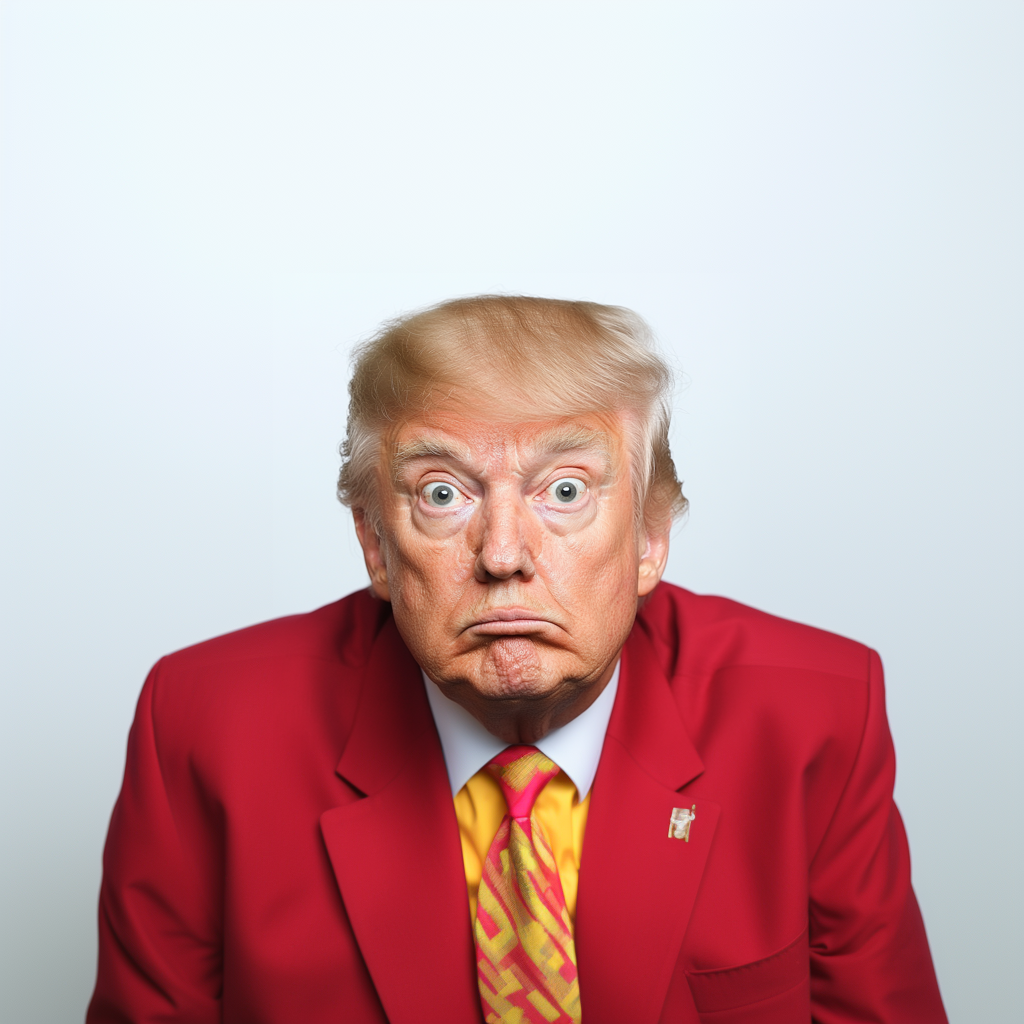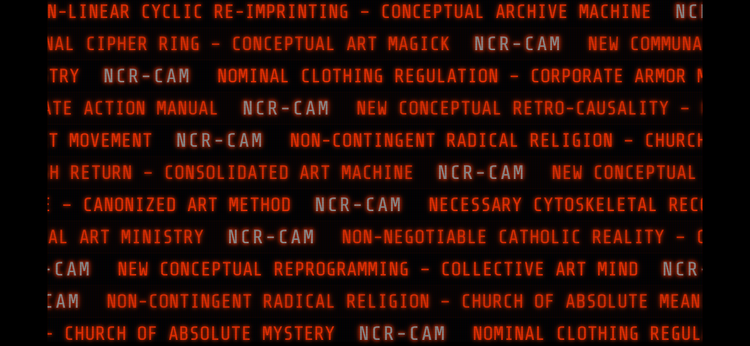Djts suicide squad

Below is a curated overview of publicly reported controversies, unflattering stories, and notable corporate or donor ties connected to each figure named for the proposed “Trump-Vance” Cabinet. This list is not exhaustive; rather, it highlights widely discussed points in media and public records. Some of these accounts involve allegations not proven in court or disputes of fact, so please note all individuals mentioned maintain their own defenses and perspectives.
1. Lee Zeldin
Position: Administrator of the Environmental Protection Agency (EPA)
• Election Challenges: Zeldin supported and defended many of President Trump’s assertions regarding the 2020 election. Critics labeled this as fueling “election-denial” rhetoric.
• Deregulatory Tilt: While not a scandal per se, he often voted for legislation favoring decreased federal oversight of energy and environmental practices, raising questions about potential conflict with the EPA’s regulatory mission.
• Corporate/Donor Ties: As a congressional candidate and officeholder, he received campaign funding from various energy and real estate interests, common among Republican incumbents but notable for someone now tapped to oversee environmental regulations.
2. Kelly Loeffler
Position: Administrator of the Small Business Administration (SBA)
• Insider Trading Allegations: During her brief Senate tenure, Loeffler sold millions in stock shortly after a closed-door COVID-19 briefing; although investigations did not result in formal charges, the optics triggered heavy criticism.
• Wealth & Finance Background: Former CEO of Bakkt (a cryptocurrency platform) and an executive at Intercontinental Exchange (ICE), the parent company of the New York Stock Exchange. Critics argue her billionaire status and focus on large-scale finance sit uneasily with the SBA’s mission to champion mom-and-pop businesses.
• WNBA Controversies: As co-owner of the Atlanta Dream, she clashed with players over social-justice initiatives, prompting calls for her to sell the team.
3. Pam Bondi
Position: Attorney General
• Trump University Donation: Bondi’s office considered but ultimately did not pursue an investigation into Trump University; around that time, President Trump made a $25,000 donation to a political group supporting her. Critics pointed to potential conflicts of interest, although Bondi denied wrongdoing.
• Lobbying & Political Ties: After her terms as Florida’s Attorney General, Bondi joined a D.C. lobbying firm and served as a vocal surrogate for Trump during his impeachment. Some view this transition as further evidence of close political entanglements.
4. John Ratcliffe
Position: Director of the CIA
• Exaggerated Resume Claims: When first nominated as Director of National Intelligence, Ratcliffe was accused of overstating his role in prosecuting terrorism cases as a U.S. Attorney.
• Perceived Partisanship: Critics, including some in the intelligence community, argued Ratcliffe’s close alignment with Trump overshadowed his experience, raising questions about independence in an agency that is ideally apolitical.
• Corporate Ties: There is little direct mention of corporate board service. His controversies lean more toward political experience and questions of credibility.
5. Tulsi Gabbard
Position: Director of National Intelligence (DNI)
• Meeting with Assad: Gabbard sparked controversy when she traveled to Syria in 2017 and met with Bashar al-Assad. She was criticized for giving credibility to a dictator accused of war crimes.
• Ties to Controversial Religious Group: She was raised in and remained loosely affiliated with the Science of Identity Foundation, prompting occasional scrutiny regarding the group’s secrecy.
• Political Flip: Formerly a Democratic congresswoman, she became an Independent and eventually leaned toward Trump on some issues. While not necessarily “corporate,” critics see her shifting alliances as opportunistic.
6. Russ Vought
Position: Director of the Office of Management and Budget (OMB)
• Budget-Cut Reputation: As OMB Director under Trump, Vought pushed for significant spending cuts to social programs, generating friction with legislators and advocates for lower-income communities.
• Partisan Policy Work: Before and after his OMB tenure, Vought headed conservative nonprofits (like the Center for Renewing America), funded in part by undisclosed donors—an arrangement some critics say lacks transparency.
7. Brooke Rollins
Position: Secretary of Agriculture
• Koch Network Funding: Rollins led the Texas Public Policy Foundation (TPPF), which has historically received support from fossil fuel interests and conservative donors (including Koch networks). Critics claim TPPF’s policy work favored corporate donors over grassroots concerns.
• Social Policy vs. Ag Focus: Her critics question whether her background in conservative think-tank advocacy and White House domestic policy overshadow her direct experience in agricultural management or climate-impact mitigation for farmers.
8. Howard Lutnick
Position: Secretary of Commerce
• 9/11 Compensation Controversies: As Chairman and CEO of Cantor Fitzgerald, which lost 658 employees in the World Trade Center attacks, Lutnick oversaw compensation and relief funds. Initially, some families accused the firm of not doing enough, though Lutnick later established a major relief fund.
• High Finance Spotlight: Questions persist about potential conflicts in regulating U.S. commerce when his entire career is steeped in investment, bond trading, and high-frequency finance.
9. Pete Hegseth
Position: Secretary of Defense
• Fox News Persona: Hegseth gained notoriety for strong conservative commentary on Fox & Friends Weekend rather than for significant strategic or administrative defense expertise. Critics label him a partisan media figure.
• Ax-Throwing Incident: A lighthearted controversy but widely publicized—he threw an axe on live television that nearly hit a West Point drummer off-camera. It highlighted, for some, impulsive behavior.
• Vets for Freedom: He was once chairman of this political advocacy group, which some claim was overly partisan, though it aimed to support military engagement overseas.
10. Linda McMahon
Position: Secretary of Education
• WWE Controversies: As WWE’s former CEO, she and her husband Vince McMahon faced scrutiny over steroid scandals, wrestler compensation, and the organization’s handling of head injuries.
• Mega-Donor & Super PAC: After leaving the Small Business Administration, McMahon chaired a pro-Trump Super PAC. Critics view her political spending as “buying” political clout.
• Minimal Education Experience: The largest criticism is her near-total lack of background in public education or academia.
11. Chris Wright
Position: Secretary of Energy
• Fracking Industry & Liberty Energy: Wright made his fortune in hydraulic fracturing (fracking). Environmental groups regularly accuse that sector of water contamination and contributing to seismic activity.
• Koch Connections: While not widely reported as a direct link, many fracking entrepreneurs rub shoulders with other fossil-fuel advocates and donors, prompting concern about the direction of federal energy policy.
12. Robert F. Kennedy Jr.
Position: Secretary of Health and Human Services (HHS)
• Anti-Vaccine Activism: Kennedy has led or supported multiple campaigns casting doubt on vaccine safety, placing him sharply at odds with mainstream science.
• Conspiracy Allegations: Critics note his public statements linking vaccines to autism and his platforming of theories about pharmaceutical industry corruption—at times described as misinformation by medical experts.
• Children’s Health Defense: The nonprofit he chairs has received undisclosed funding from various sources. Opponents say it spreads discredited or misleading health claims.
13. Kristi Noem
Position: Secretary of Homeland Security
• Use of State Planes: Noem faced scrutiny over using state aircraft for personal or political events. Ethics boards in South Dakota reviewed these claims.
• Real Estate Appraiser Controversy: Noem reportedly intervened in a state agency’s decision about her daughter’s real estate appraiser certification. An ethics complaint followed.
• Corporate Ties: She has received significant backing from the agriculture industry, though that’s typical for South Dakota politicians.
14. Scott Turner
Position: Secretary of Housing and Urban Development (HUD)
• Limited Direct Housing Expertise: Beyond Opportunity Zones, there’s little record of Turner handling robust housing or urban development policy, so critics question his readiness.
• NFL Connections: Turner was an NFL cornerback, but no significant corporate scandal or major unflattering story widely reported. He is, however, closely tied to conservative donors who champion Opportunity Zones.
15. Doug Burgum
Position: Secretary of the Interior
• Microsoft Windfall: Burgum became wealthy after selling his software company to Microsoft, then stayed on as a corporate vice president. Critics have occasionally questioned his use of that tech fortune in politics, though no major corruption scandal is associated with him.
• Conflicts Over Oil & Gas: As governor of North Dakota, he pushed for energy development in the Bakken region. Environmentalists see potential conflicts if he’s to balance conservation with fossil-fuel extraction on federal lands.
16. Lori Chavez-DeRemer
Position: Secretary of Labor
• Happy Valley Politics: She was mayor and then congresswoman, but no high-profile scandals are documented.
• Pro-Business Stance: She’s a Republican with a business background, so labor advocates may question whether she’d favor corporate or management interests over unions and workers.
17. Marco Rubio
Position: Secretary of State
• Florida GOP Credit Card: Early in his career, Rubio used a Florida Republican Party credit card for personal expenses; he repaid the charges, but political opponents still use it to question his ethics.
• Ties to Wealthy Donors: Rubio has longstanding relationships with major Republican donors in Florida, including auto dealer Norman Braman, prompting occasional scrutiny over the influence of money on his policy positions.
18. Doug Collinà
Position: Secretary of Veterans Affairs
• Partisan Impeachment Role: Collins gained national attention as a staunch defender of Trump during impeachment proceedings, drawing criticism about hyper-partisanship.
• No Major Corporate Ties: Collins is a chaplain in the Air Force Reserve; there’s little evidence of significant corporate entanglements, though he has received campaign donations from typical GOP-aligned industries (health care, finance, etc.).
19. Sean Duffy
Position: Secretary of Transportation
• Reality TV Persona: He rose to prominence on MTV’s The Real World. Critics occasionally mock that background for a lawmaker or Cabinet official, though it’s not inherently “scandalous.”
• Fox News Employment: After leaving Congress, he worked as a commentator on Fox, a frequent path for Republican politicians. No major corporate scandal but some see an echo of partisan or corporate media influence.
20. Scott Bessent
Position: Secretary of the Treasury
• Soros Fund Management: Bessent was once Chief Investment Officer for George Soros, a perennial target of right-wing politicians—ironic given Trump’s frequent criticism of Soros. Some see it as an ideological mismatch.
• Hedge Fund World: As with many hedge fund managers, the secrecy of capital sources and investment strategies might prompt questions about potential conflicts if he takes a public role shaping U.S. fiscal policy.
21. Elise Stefanik
Position: U.S. Ambassador to the United Nations
• Hardline Shift: Stefanik was once considered a moderate Republican but became a vehement Trump backer and rose to GOP Conference Chair. Critics accuse her of prioritizing political ambition over consistency.
• Corporate Donors: Over the years, her campaign donations have come from an array of industries, including big tech and defense contractors, potentially relevant when representing U.S. interests internationally.
22. Jamieson Greer
Position: U.S. Trade Representative (USTR)
• Close Ties to Lighthizer & Trump: He was chief of staff to Robert Lighthizer, orchestrating trade battles with China. Critics of Trump’s trade wars might see him as continuing a protectionist or unpredictable trade policy.
• Corporate Ties: Direct controversy is minimal in public reporting. As a lawyer and ex-Air Force JAG, Greer’s main “unflattering” angle is usually tied to the broader controversies of Trump’s tariff strategies.
Concluding Note
Many of these individuals have led “successful” careers and deny any wrongdoing in controversies attributed to them. Nonetheless, critics see mismatches between their personal histories or corporate alliances and the missions of the federal agencies they’ve been tapped to lead—fueling debates over potential conflicts of interest, questions of moral credibility, and the specter of partisanship trumping public service. When government roles intersect with past corporate or political entanglements, transparency and accountability become central concerns for both supporters and skeptics alike.






Member discussion